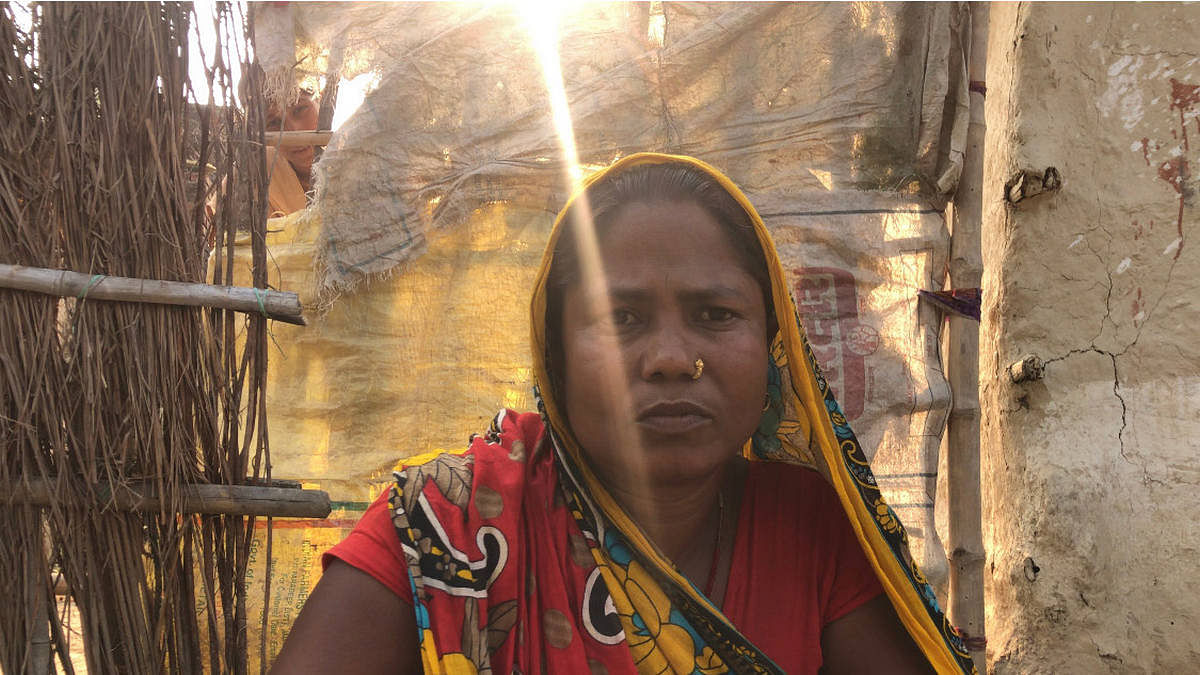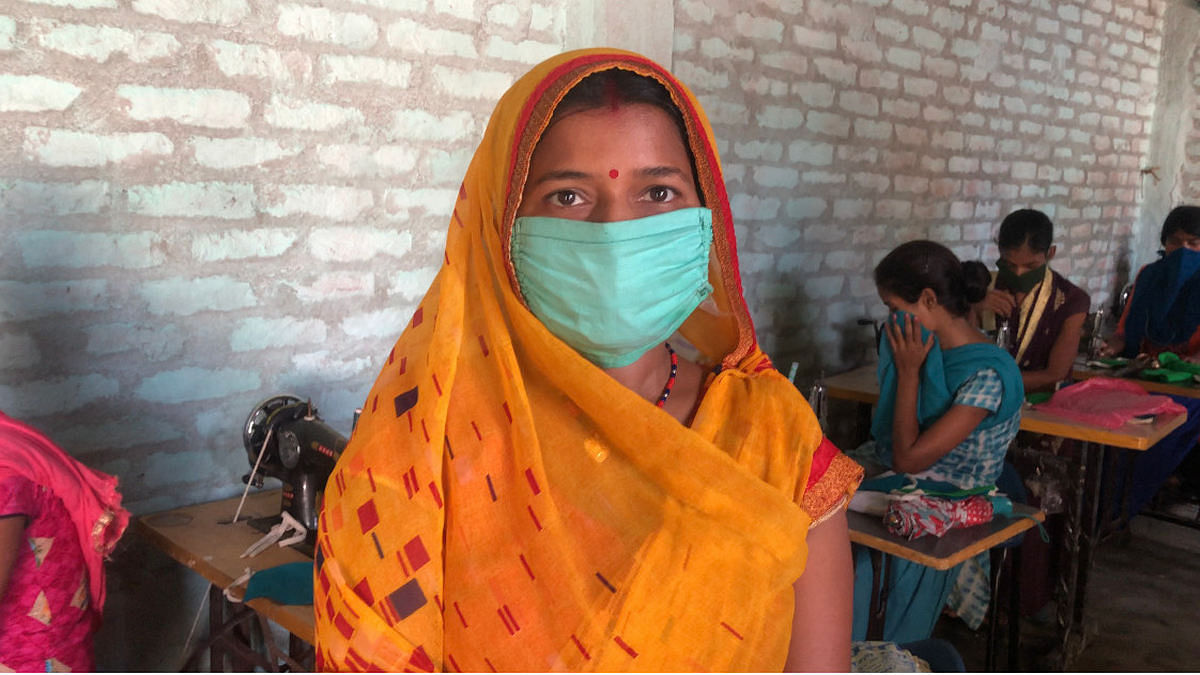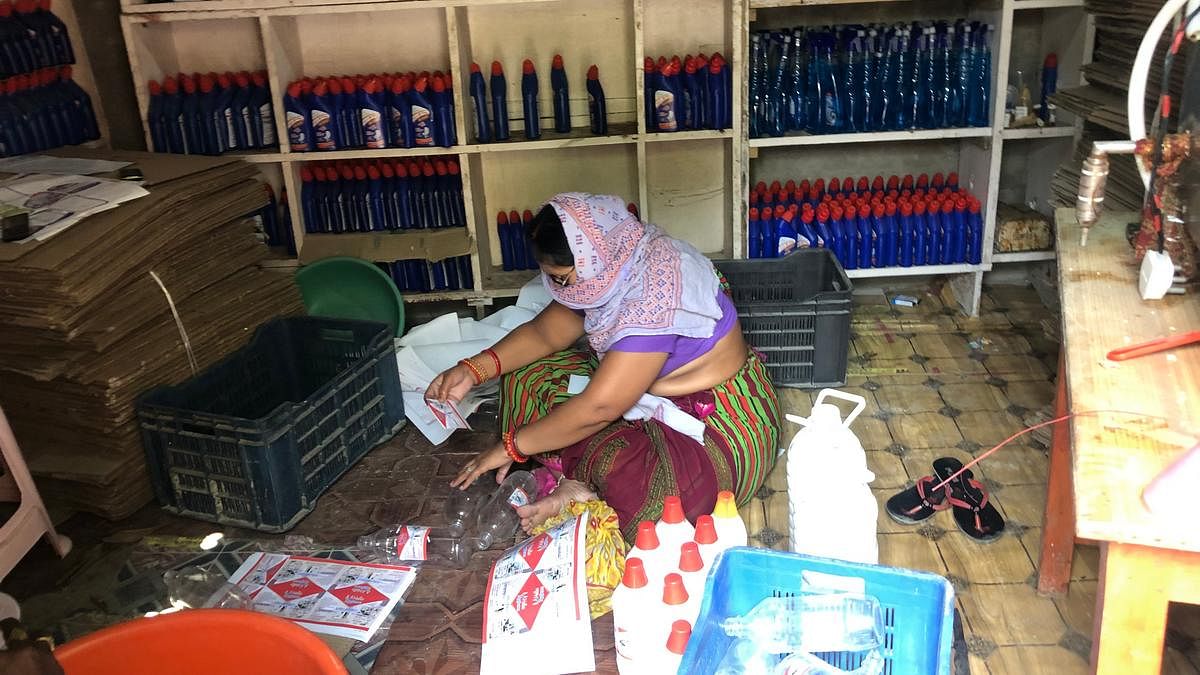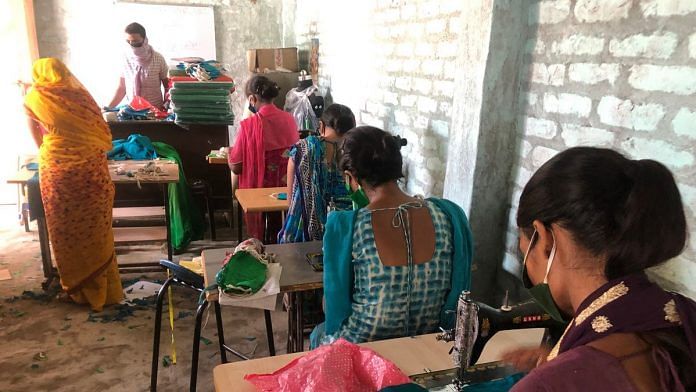Sitamarhi: The migrant workers crisis under the Covid-19 lockdown has changed the life of the women in their families — for the worse.
In Bihar’s Sitamarhi district, for example, the men who have returned home hardly have any money or income source to support their families, while those still on the way or stranded in their places of work are asking their families to send money to sustain themselves or pay for tickets to come back.
This has put the economic burden of the household on women, and led to a trend of illegal borrowing from money-lenders at high interest rates. Under the Bihar Money Lenders Act of 1974, private money lenders not registered with the state government are prohibited from lending money.
ThePrint visited three villages in Sitamarhi — Jankinagar, Malhatola and Kaharwa, all under the Singhwahini panchayat — to delve further into this worrying trend.
Also read: 9-month pregnant woman travels 900 km from UP to Bihar, then made to wait hours for delivery
Falling in the debt trap
Indu Devi, 55, has three sons — Ashok, Alok and Santosh — all daily-wage construction workers and stranded in Punjab. The family back home in Malhatola village has nine members, including three children aged between two and six. Her husband died many years ago — she doesn’t even remember how long it has been.
Not only has the burden of supporting the family fallen on Indu Devi, she also has to arrange money for Alok’s seven-month pregnant wife Ragini’s delivery, because of the uncertainty of when her sons will return, and if they will have any money when they do.

“I have no land, the only income I have is by selling cow milk, as well as the goats I had bought by taking a loan under the Jeevika programme (under the Bihar Rural Livelihoods Promotion Society) before the lockdown,” Indu Devi said.
“I have to send money to my sons. Their lala (contractor) has been asking them for rent and to pay for food. I have taken a loan of Rs 50,000 at an interest rate of 5 per cent, out of which I have sent Rs 20,000 to my sons, and kept the rest to feed the family and for Ragini’s delivery,” she said.
“Even if they lend money at a higher interest rate, I will still have to borrow because the burden of the family is on me, and I can’t let the children die of hunger. My sons now have no income. Earlier, they used to send enough for us to survive,” Indu Devi said.
Asked if her sons had tried to return aboard the central government-run ‘Shramik Special’ trains, she said: “I don’t know why they aren’t able to come here on the train. I am too illiterate to understand. When I ask them, they say they are trying.”
Jankinagar’s Bindu Devi has a similar story to tell. Her husband, who used to work in a fabric shop in Muzaffarpur, is stranded there.

“He has no money to eat or recharge his mobile, and no money to travel. I am recharging his mobile and sending him money by taking a loan of Rs 15,000,” Bindu Devi said, adding that money lenders have not only increased the interest rate from 4 per cent to 5 or 6 per cent, but are also sometimes unwilling to lend.
“Even if they are going to increase the interest rate, I still have to take a loan. There is hardly any option left,” she said.
Also read: Bad food, water fights, 2 toilets for 240 — Bihar’s migrants come home to a different crisis
Administration’s response
When ThePrint tried to speak to lenders (sahukar) in the villages, they refused to talk.
Sitamarhi’s Superintendent of Police Anil Kumar said no complaint had been received so far in this regard, but they were keeping an eye out.
“Private money lending (by unregistered lenders) is an illegal offence and whenever someone complains, we take immediate action. We have also asked our thana prabhari (station in-charge) to create awareness workshops to educate people not to take loans from private lenders at high interest rates,” Kumar said.
“So far, no cases have been officially reported by these women for us to take action. We are keeping an eye,” he added.
ThePrint also tried to reach the district magistrate of Sitamarhi via messages and phone calls but did not receive a response.
Village head’s efforts
Ritu Jaiswal, mukhiya (head) of the Singhwahini panchayat, acknowledged that this trend was increasing, and said it could lead to other problems for the women of the villages.
“The men of these families used to send money home, but under the current circumstances, the economic pressure on the women has forced them to take huge loans from lenders at high interest rates of 5 or 6 per cent,” Jaiswal said.
“Their condition could further deteriorate after the lockdown is over. There is a huge probability that now there will also be a surge in cases of domestic violence,” she added.
Asked what she as the villages’ head had done to help the women, Jaiswal said: “I decided to provide them employment in making masks and phenyl, as there is ample demand right now.”

Panchayats are producing masks under the Panchayat Nidhi Scheme, and the district authorities buy masks from them at the rate of Rs 20 per mask. Phenyl, meanwhile, fetches Rs 300 for every 5 litres.
Jaiswal added: “Even before the lockdown, I had provided them loans under the Bihar government’s flagship programme Jeevika, with which they bought cows and goats. Some women didn’t have to take a lot of credit, because they had sold their cows and goats to send money to the stranded men of their families, and could manage the household finances.”
Also read: This small, remote village on UP-Bihar border is feeding thousands of hungry migrant workers
What has the state govt done to help?
The Bihar government, in a press release dated 20 May, said more than 20 lakh people in the state have been provided Rs 1,000 each from the Prime Minister’s relief fund. It added that more than 2 crore people are being provided employment under the Mahatma Gandhi National Rural Employment Guarantee Act (MGNREGA) and other state government schemes such as Jan Hariyali and Har Ghar Nal Se Jal.
The release also stated that around 13 lakh families with no ration cards have been provided with Rs 1,000 in their accounts under the Jeevika and National Urban Livelihoods Mission schemes.
“Ten lakh women are already associated with Jeevika, and we are planning to include women migrant workers under this scheme. The state government is planning to provide free rations for the next two months to migrant workers who have returned to the state,” Bihar’s Information Minister Neeraj Kumar Singh told ThePrint.
“We are also providing job cards to migrant workers who do not have them, so that they can be employed on an urgent basis under MGNREGA,” Singh said.
Meanwhile, Manoj K. Jha, professor at Delhi University’s School of Social Work, and Rajya Sabha MP for Bihar’s main opposition party Rashtriya Janata Dal, said the government needs to do more for the returning migrants and their families.
“To make the lives of these women easier, the Jan Dhan amount provided by the government needs to be increased from Rs 500 to around Rs 7,000 for the next four months,” Jha told ThePrint.
“Moreover, the MGNREGA amount also needs to be increased from Rs 202 to Rs 400, and the days of employment need to be increased from 100 to 200,” he said, adding that the state needs to be serious about cutting off this trend of borrowing money, otherwise “these women will continue to be victimised by lenders and will remain indebted for a long, long period of time”.
Also read: Bihar has a lot to lose due to Covid crisis, but Nitish Kumar is the most relaxed CM




This is the result of aandh bakhti. Jai Modi ki !
Is it not a catch 22 situation.
No one will file a report to continue the access to funds. Police will not take cognisance until a report is filed.
On of critical issues in our governance model that needs correction. The response cannot be arrest of the unregistered money lender – but the government placing money in the hands of the poor.
The money lending by private money lenders loses rationale after the arrival of Nationalized banks.
The Nationalization of Banks is a historic landmark decision with a laudable objective of mass banking as as against class banking,which means that Banks should help the poor and the needy and partake of their welfare
Now that there is an opportunity of helping women like InduDevi and Bindu Devi.who are in distress
with loans at reasonable interest from Nationalised Banks, .The principle of Grameen Bank can be adopted in managing and recovery of these loans,The repayment habits of poor sections of society have proven to be good and dependable as per the experience of Grameen Banks,
This will gradually wipe out money lenders from the system ,which is anachronistic and Shylockian
practice and reform the financial system for the Indian Society.